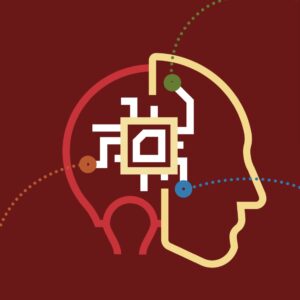As technology continues to advance, the role of artificial intelligence (AI) in the workforce is becoming increasingly important. AI is changing the way companies operate, from customer service to data analysis, and is expected to play a significant role in the future of work.
According to a report by McKinsey Global Institute, AI could contribute up to $15.7 trillion to the global economy by 2030. This growth is expected to create new jobs and increase productivity
across industries. The report also notes that while some jobs may be displaced by automation, many new jobs will be created to support the development and implementation of AI.

How Can CIRAS Assist?
CIRAS provides assessments and customized services
to help companies effectively identify opportunities and implement Industry 4.0 technologies.
In a recent interview, Dr. Kai-Fu Lee, CEO of Sinovation Ventures, spoke about the impact of AI on the workforce. “AI is going to change every job, and it’s going to make many jobs more efficient and
effective,” said Dr. Lee. “But it’s also going to create new jobs that we haven’t even imagined yet.”
One industry that is expected to benefit greatly from AI is healthcare. According to a report by Accenture, AI could save the healthcare industry $150 billion annually by 2026. AI can be used to analyze patient data, identify trends, and predict potential health issues. This technology can also be used to improve patient care by automating routine tasks, allowing doctors and nurses to focus on more complex cases.
In the financial industry, AI is being used to streamline processes and improve customer service. Chatbots, powered by AI, are being used to answer customer inquiries and provide financial advice. According to a report by Juniper Research, the adoption of chatbots in the banking industry is expected to save $7.3 billion annually by 2023.
While AI is expected to create new job opportunities, it is also important for the workforce to adapt to this new technology. In a survey conducted by Gartner, 50% of companies said that they plan to retrain their employees to work alongside AI. “It’s important for workers to develop skills that are complementary to AI,” said Dr. Lee. “This will allow them to work alongside this technology and leverage its capabilities.”
In conclusion, the impact of AI on the workforce is significant and multifaceted. While it is expected to create new job opportunities and increase productivity, it is important for workers to adapt to this new technology. As Dr. Lee notes, “AI is going to change the way we work, but it’s also going to make us more productive and efficient.”
For more information, Mary McGraw at mcgraw@iastate.edu or 515-231-4734.